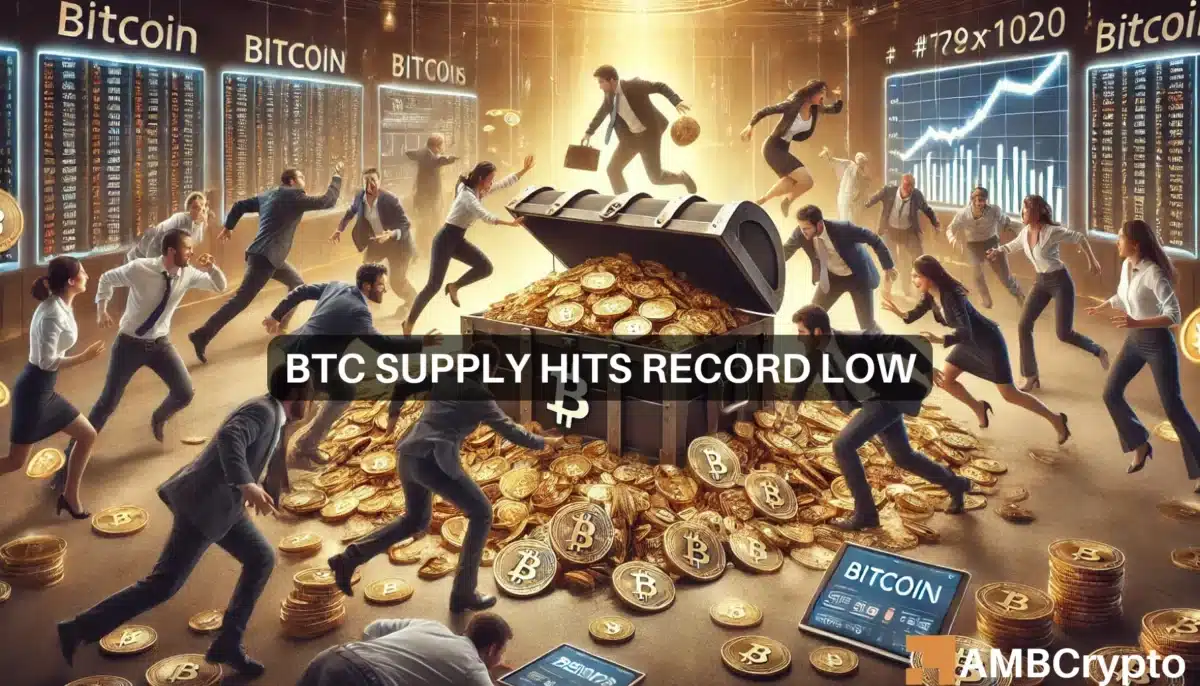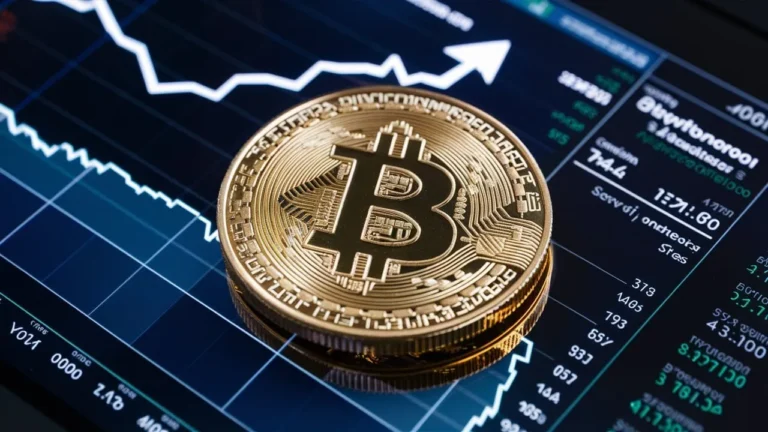In a significant turn of events, Bitcoin exchange reserves have plummeted to their lowest levels since 2021, signaling a major shift in the market dynamics. This article highlights the increasing interest from institutional investors, often referred to as “whales,” and the implications of this trend for the cryptocurrency landscape. Here’s a breakdown of what’s happening, why it matters, and how it can benefit your knowledge in this field.
Understanding the Basics: What Are Bitcoin Exchange Reserves?
Bitcoin exchange reserves refer to the amount of Bitcoin held on trading platforms where users can buy, sell, or trade the cryptocurrency. When these reserves are low, it means that a lot of Bitcoin is being taken off exchanges, indicating that investors prefer to hold their assets rather than trade them frequently.
Key Trends to Note
- Massive Withdrawals: Over the past month, more than 51,000 Bitcoin have been withdrawn from major exchanges. This withdrawal trend suggests that investors are moving their Bitcoin into cold storage (secure offline wallets) as part of a long-term investment strategy, rather than keeping it on exchanges for trading.
- Institutional Interest: There’s a notable rise in institutional demand for Bitcoin. New wallets belonging to institutions (not including miners or exchanges) have been accumulating Bitcoin at an unprecedented rate. This means that companies and large investors are purchasing significant amounts of Bitcoin, contributing to a growing buying pressure.
- Impact of ETFs: The approval of spot Bitcoin ETFs (Exchange-Traded Funds) has driven this accumulation. These financial products allow more institutional money to flow into Bitcoin, as they provide a regulated way for traditional investors to gain exposure to the cryptocurrency.
- Upcoming Halving: Anticipation of the next Bitcoin halving event (a process that reduces the reward for mining new Bitcoin) is also influencing investor behavior. Historically, halvings have led to price increases due to decreased supply.
- Mt. Gox and Coinbase Influence: The decline in Bitcoin reserves is partly attributed to the distribution of Bitcoin from the Mt. Gox exchange to its creditors and a decrease in reserves at Coinbase. This means less Bitcoin is available for trading, reducing sell pressure.
Why Is This Important?
Understanding these trends is crucial for several reasons:
- Investment Opportunities: As institutional players accumulate Bitcoin, it could lead to higher prices in the future. Recognizing this pattern can help you make informed decisions about when to buy or hold Bitcoin.
- Market Sentiment: When large investors (whales) buy Bitcoin, it often signals a positive shift in market sentiment. Learning to identify these signals can improve your trading strategies.
- Long-term Strategies: The trend of moving Bitcoin into cold storage suggests that many investors are focusing on long-term gains rather than short-term profits. This mindset can be beneficial for your investment strategy.
Steps to Enhance Your Knowledge
- Follow Market Trends: Stay updated with articles and reports on Bitcoin market movements. Use platforms like CryptoQuant to track exchange reserves and whale activity.
- Educate Yourself on ETFs: Understand how Bitcoin ETFs work and their impact on market liquidity and investor behavior.
- Learn About Halving Events: Research past halving events to see how they affected Bitcoin’s price and supply dynamics.
- Engage with the Community: Join online forums or communities focused on cryptocurrency trading. Engaging with other traders can provide valuable insights and diverse perspectives.
- Practice Risk Management: As you explore trading, always consider your risk tolerance and develop a strategy that aligns with your investment goals.
Key Terms to Remember
- Bitcoin Exchange Reserves: The amount of Bitcoin held on exchanges.
- Cold Storage: Offline wallets used for securely holding cryptocurrency.
- Whales: Large investors or entities that hold significant amounts of Bitcoin.
- Spot Bitcoin ETFs: Exchange-traded funds that track Bitcoin prices, allowing institutional investments.
- Bitcoin Halving: An event that reduces the reward for mining Bitcoin, affecting supply.
By understanding these concepts and trends, you can enhance your knowledge in the cryptocurrency field, positioning yourself to make informed decisions and potentially benefit from future market movements. As the cryptocurrency landscape evolves, staying informed and adaptable is key to navigating the opportunities that lie ahead.



